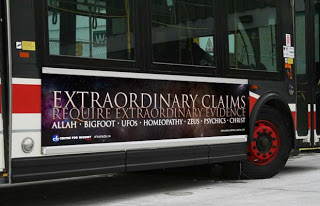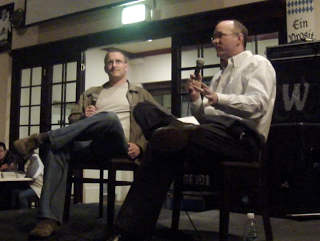Now here’s an effort I can get behind. Atheist Ireland requests that if you’re not religious, don’t automatically tick the box for a religion in the upcoming census.
Be Honest to Godless in the Irish Census on Sunday 10 April. Think before you tick. And if you’re not religious, please tick the no religion box.
It’s now three months to the next Irish Census on 10 April, and Atheist Ireland wants to see an accurate answer to the question on religion. You won’t write in your childhood home address unless you still live there. So don’t write in your childhood religion unless you still really practice it.
Sounds reasonable. And the British Humanist Organisation is saying the same thing.
If you say you’re religious on the census and don’t really mean it, then you are treated by some sections of the media, churches, and even government policymakers as if you are a fully-fledged believer.
This is significant for Australians because we’re having a census of our own in August this year. We have a census every five years instead of ten. (Takes less time to count us.) The 2006 census was the first time I’d identified as “No Religion” (but I didn’t identify as an atheist). I have to say, it was a somewhat exhilarating experience, one that you can enjoy for yourself. I’m really looking forward to see how the unchurched categories jump, as they have consistently done.
But somewhat strangely, the Irish Atheists are requesting that atheists not say they’re atheists.
Please don’t write in ‘Atheist’, or anything else that is not a religion, in box number 6, which says ‘write in your RELIGION’. That makes some people mistakenly think that atheism is a religion, and creates the impression that there are far fewer atheists than is actually the case.
Okay, so atheism is not a religion. But if someone asked me, “What religion are you?” I’d say, “None; I’m an atheist.” So I can see “No religion” or “Atheism” as appropriate answers. The confusion about atheism-as-religion is annoying, but people won’t suddenly straighten themselves out from the census alone. It’s the kind of thing you have to explain to people over and over, one person at a time. Which we will continue to do after the census is over.
And if you think about it, it doesn’t make sense to say “Don’t write in ‘Atheism’ because not enough people will write in ‘Atheism'”. Let’s turn that argument on its head — do write ‘Atheism’ so that more people will be writing ‘Atheism’!
How does the religion question work for Australia? The Australian Bureau of Statistics has a space for the categories “No Religion”, “Atheism”, and “Agnosticism”. (Download an Excel spreadsheet of all the religious data on this page.) I plan on writing in ‘Atheism’ because observers and journalists will group atheists in with the ‘No Religion’ category anyway, and why not be as specific as possible? And, of course, if atheists write “Atheism”, then more atheists will be identifying explicitly as atheists, which is a good thing.
That’s my argument, anyway. But what is everyone else doing?
As a final note, the LDS Church claims that there were 108,851 Mormons in Australia in 2006. In the same year, only 52,141 people self-identified as LDS. You’d think saying “I’m LDS” would be some kind of minimal requirement to be considered a member. Do you think the LDS Church is not doing their best to keep a really accurate count?







Recent Comments